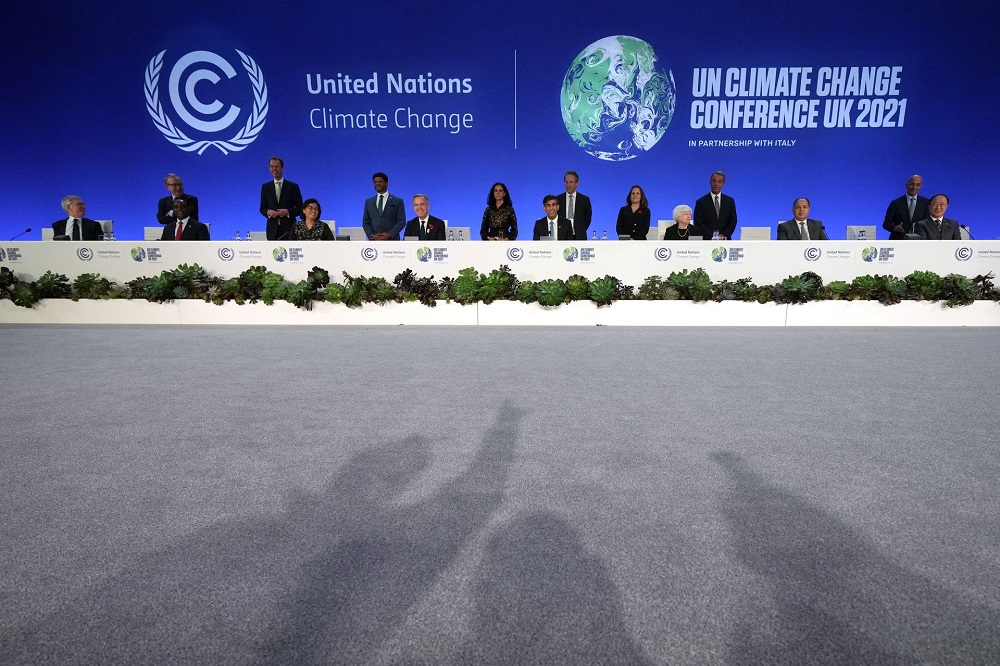The 26th United Nations Climate Change Conference, also known as COP26, commenced on October 31 in Glasgow, Scotland’s largest city, and has been ongoing throughout the week, continuing to November 12.
World leaders and delegates are set to flesh out international deals and agreements to tackle climate change. The summit is being regarded as the world’s last chance to make meaningful cuts to greenhouse gas emissions to achieve net zero by 2050 and keep global warming to 1.5C by the end of the century. Other negotiations include making commitments to deforestation and protecting biodiversity.
Around 200 nations are in attendance and so far, several deals have already been agreed.
One of the most significant deals that many Arab nations have signed up to is the agreement to slash methane emissions by 30 percent by 2030. Over 100 countries representing 70 percent of the global economy and almost half of artificial methane emissions signed the deal, with the Arab signatories including Saudi Arabia, Jordan, the United Arab Emirates, Iraq, Morocco and Tunisia. Egypt did not sign the agreement.
The deal is considered a significant step in the fight against climate change as methane is a much more potent greenhouse gas than carbon dioxide yet lasts much less time in the atmosphere.
However, according to Enterprise, Egypt signed the “Global Coal to Clean Power Statement” agreeing to the phasing out of coal power.
Today, Zilla Capital reported that the US-based multinational investment management firm, BlackRock (and the world’s largest asset manager), announced that Egypt is among the most attractive emerging markets for its $673 million climate fund.
$25-75 million are expected to be invested in Egypt’s climate-related projects.
Ernst & Young, one of the world’s largest strategy consulting organizations, also ranked Egypt in the top 20 globally for renewable energy attractiveness. The Egyptian government is planning for 42 percent of electricity generation to come from renewables by 2035, which is set to cost $1.5 billion. Part of the funding will come from the government’s £750 million green bond issuance, making Egypt the first country in the region to sell climate-related debt.
Also at COP26, Hala Said, the Egyptian planning minister, said that private-sector companies in the country will also be allowed to issue between $120-200 million in corporate green bonds.
According to Delta Digest, $1 trillion a year are going to be needed to finance the green transition of emerging markets such as Egypt in order for them to achieve net zero by 2050.
Financing poorer and developing countries have been a key part of the negotiations at COP26 to achieve carbon targets. According to Oxford Business Group, the Like-Minded Developing Countries group (of which Egypt is a member), released a statement in October claiming that the 2050 net zero targets being pushed by developed countries are “anti-equity and against climate justice.”
Richer nations are being accused of passing responsibility for climate change onto developing countries (despite being the world’s largest carbon emitters) and for failing to acknowledge their historical contribution to climate change since the Industrial Revolution 200 years ago.
Providing access to finance for poorer countries to assist their decarbonization efforts and shifts to renewables have been a diplomatic sticking point at several COPs.
At the 2009 climate summit, rich economies pledged to provide $100 billion annually to developing countries in climate financing by 2020. However, that target was missed by $20 billion last year.
Meeting that target was a major talking point at COP26 on November 3, according to a press release, which said “New commitments for climate financing […] came from the United Kingdom, Spain, Japan, Australia, Norway, Ireland and Luxembourg, that build on the plan set out ahead of COP26 to deliver the $100 billion per year to developing countries […] The United States, the European Commission and the UK also committed to work in partnership with countries to support a green and resilient recovery from COVID-19 and boost investment for clean, green infrastructure in developing countries.”









